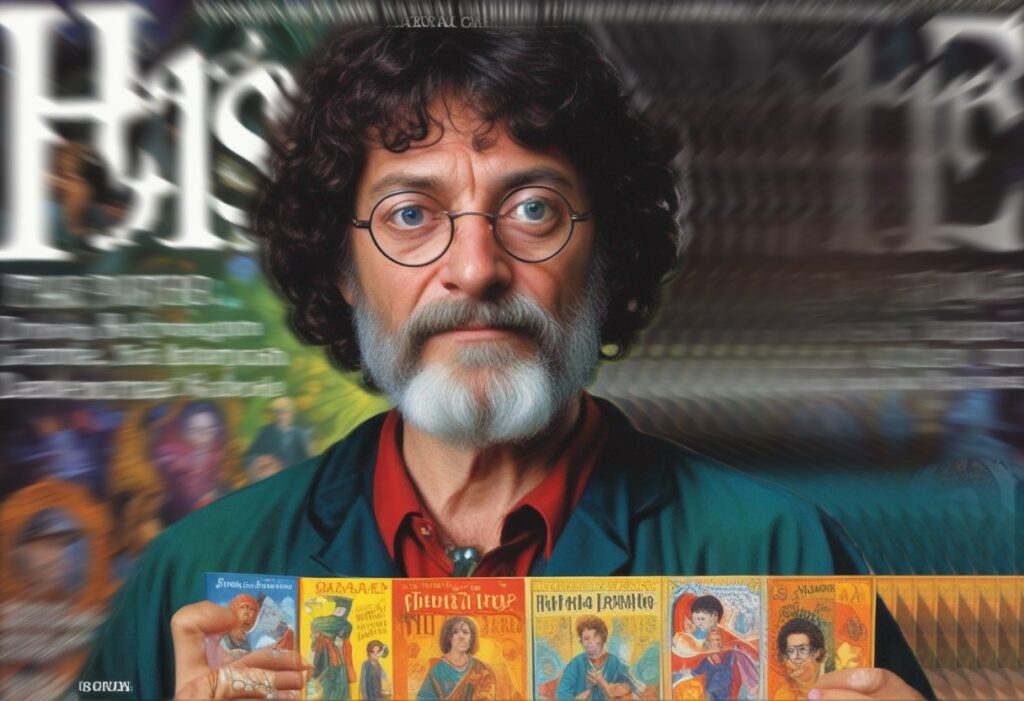Long before the magical world of Harry Potter captured the imaginations of readers around the globe with tales of Nicolas Flamel and the Philosopher’s Stone, Terence McKenna, an ethnobotanist, mystic, and psychonaut, embarked on a real-life quest that seemed to parallel the fantastical journeys found within the pages of J.K. Rowling’s beloved series. McKenna’s search was not just for knowledge or adventure but for the very boundaries of human consciousness and the secrets of the universe itself. This article explores McKenna’s intriguing journey into the mystical and his philosophical quest for the Philosopher’s Stone, a symbol of alchemical transformation.
The central conception of alchemy is the conception of the philosopher’s stone. What is it? It’s the universal panacea at the end of time. It’s the chocolate cake that your mother made once a week when you were a child. It is the pana supersubstantialis. It’s all things to all men and all women. If you’re hungry, you eat it. If you’re dirty, you shower under it. If you need to go somewhere, you sit on it and you fly there. If you have a question, it answers it. It’s something that the human mind senses in itself and is related to, invoked and worshiped over centuries, before the slow rise of the patriarchy, rationalism and materialism turned it into a myth and a fairy tale.
Terence McKenna
The Alchemical Dream
At the heart of McKenna’s interest was alchemy, an ancient practice that combined elements of chemistry, metallurgy, physics, medicine, astrology, semiotics, mysticism, spiritualism, and art. Alchemy’s most famous goal was the creation of the Philosopher’s Stone, a legendary substance said to be capable of turning base metals into gold and granting immortality through the Elixir of Life. For McKenna, however, the Philosopher’s Stone represented something far more profound: a metaphor for the potential of human consciousness and the possibility of transforming the ‘lead’ of our material existence into the ‘gold’ of spiritual enlightenment.
Terence McKenna and the Ethnobotanical Path
McKenna’s approach to this ancient quest was through the lens of ethnobotany and the study of psychoactive plants. He was deeply interested in the ways in which indigenous cultures used these plants for healing, divination, and connecting with the divine. McKenna posited that the true Philosopher’s Stone might be found not in a physical substance but in the transformative experiences facilitated by these psychoactive plants. He suggested that the visions and insights gained from such experiences could unlock the secrets of the universe, much like the alchemists’ dream of transmutation.
The Shamanic Connection
McKenna often drew parallels between the work of the alchemists and the practices of shamans. He saw both as engaged in a kind of proto-science, seeking to understand and manipulate the forces of nature for the betterment of humanity. In his view, the alchemists’ laboratory was not so different from the shaman’s sacred space, where psychoactive plants were used as tools for exploring the unseen realms. For McKenna, the Philosopher’s Stone was akin to the shamanic journey: a means of achieving profound insight and transformation.
Beyond Gold: The Quest for Transformation
For McKenna, the significance of the Philosopher’s Stone went beyond the alchemical dream of material wealth to touch on the deeper longing for spiritual awakening and the expansion of consciousness. He believed that by exploring altered states of consciousness, humanity could achieve a new understanding of its place in the cosmos and potentially unlock the mysteries of existence. In this sense, McKenna’s quest was not for a literal stone but for a deeper, metaphorical truth about the potential for human transformation.
The Legacy of McKenna’s Quest
Terence McKenna’s explorations into the realms of ethnobotany, psychedelics, and mysticism left a lasting impact on the fields of consciousness studies and psychedelic research. His quest for the Philosopher’s Stone, while perhaps as elusive as the alchemists’ dream, challenged conventional thinking and opened new avenues for understanding the human experience. Long before Harry Potter introduced the idea of the Philosopher’s Stone to a new generation, McKenna was charting a course through the mysteries of the mind and the universe, in search of transformation and enlightenment.
Conclusion
Terence McKenna’s journey in search of Nicolas Flamel’s Philosopher’s Stone serves as a reminder of the enduring human quest for knowledge, transformation, and the exploration of the unknown. While the landscapes of his quest were vastly different from the magical world of Harry Potter, the underlying themes of exploration, transformation, and the pursuit of a deeper understanding of life’s mysteries resonate across both. McKenna’s life and work continue to inspire those on their own quests for personal and spiritual growth, proving that the search for the Philosopher’s Stone, in its many forms, is a timeless endeavor.





